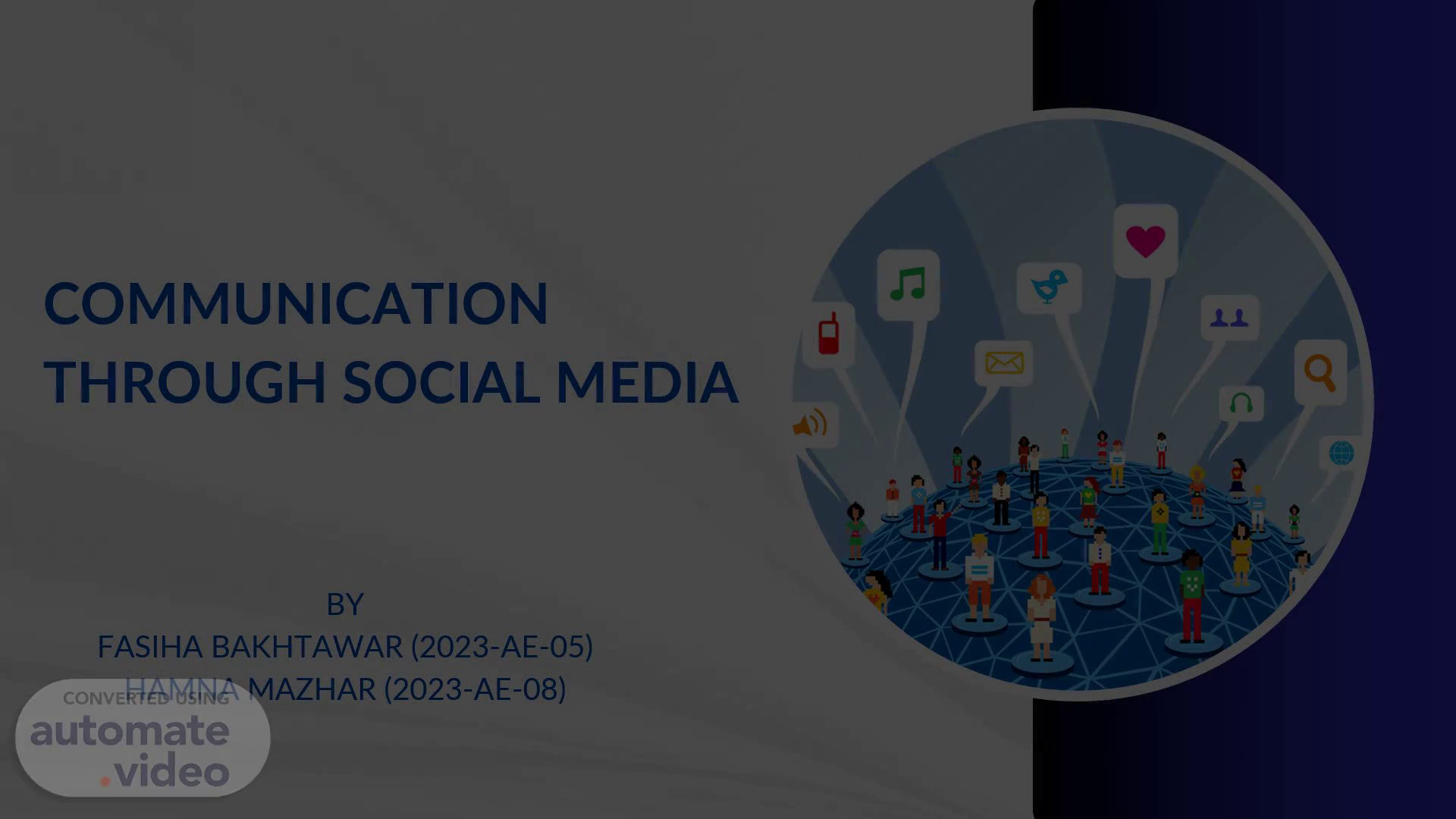Page 1 (0s)
[Audio] Good morning, everyone! Today, we're diving into an exploration of how social media has fundamentally changed the way we communicate. ? Let's see how these platforms are reshaping our communication..
Page 2 (11s)
[Audio] in this video, we will discuss what is social media? , evolution of social media and impact of social media on personal communication.
Page 3 (23s)
[Audio] Social media isn't just for fun; it's a powerful tool for talking to each other, sharing news, and even helping businesses grow. We'll see how people around the world use these platforms to stay connected, share ideas, and participate in discussions. From chatting with friends and family to interacting with customers, social media platforms help us reach out and communicate more effectively than ever before. Social media platforms have become central to modern communication, fundamentally reshaping how we interact both personally and professionally..
Page 4 (56s)
[Audio] lets have a look on a brief history of social media as a communicating tool.Starting with early networks like Friendster and MySpace in the early 2000s, These were some of the first networks that allowed users to create personal profiles and connect with friends. then the launch of Facebook in 2004 . The introduction of Twitter and Instagram then shifted the focus to microblogging and visual content, respectively. More recent platforms like Snapchat and TikTok continue to innovate with features appealing especially to younger users. This rapid evolution has fundamentally transformed how we connect and communicate globally.".
Page 5 (1m 35s)
[Audio] now let's see hoe social media has reshaped the way we communicate personally. we have advantages and disadvantages of social media as a communication tool. Distraction and Time Wastage: Social media can be a major distraction, consuming time that might otherwise be spent on face-to-face interactions or other productive activities. Lack of Privacy: The ease of sharing on social media can inadvertently lead to oversharing, compromising users' privacy and sometimes leading to cyberbullying or harassment.Mental Health Issues: Continuous exposure to idealized images and the pressure to maintain a certain online image can lead to mental health challenges, including anxiety and depression.Social Isolation: Despite increased virtual connectivity, excessive social media use can lead to feelings of isolation and real-world disconnection. "Accessibility: Social media provides tools that make communicating with others easy and accessible from anywhere in the world, allowing for immediate connection.increased Connectivity: Social media makes it easier to stay in touch with friends and family, regardless of geographic distance. Strengthen Relationships: By enabling regular updates and interactions, social media helps maintain and strengthen relationships over long distances that might otherwise drift apart.Diverse Communication Channels: Platforms like Facebook, Instagram, and WhatsApp offer various ways to communicate, from text and video chats to sharing photos and status updates, catering to different communication preferences..
Page 6 (3m 15s)
[Audio] Thanks for your attention... THANK YOU.
